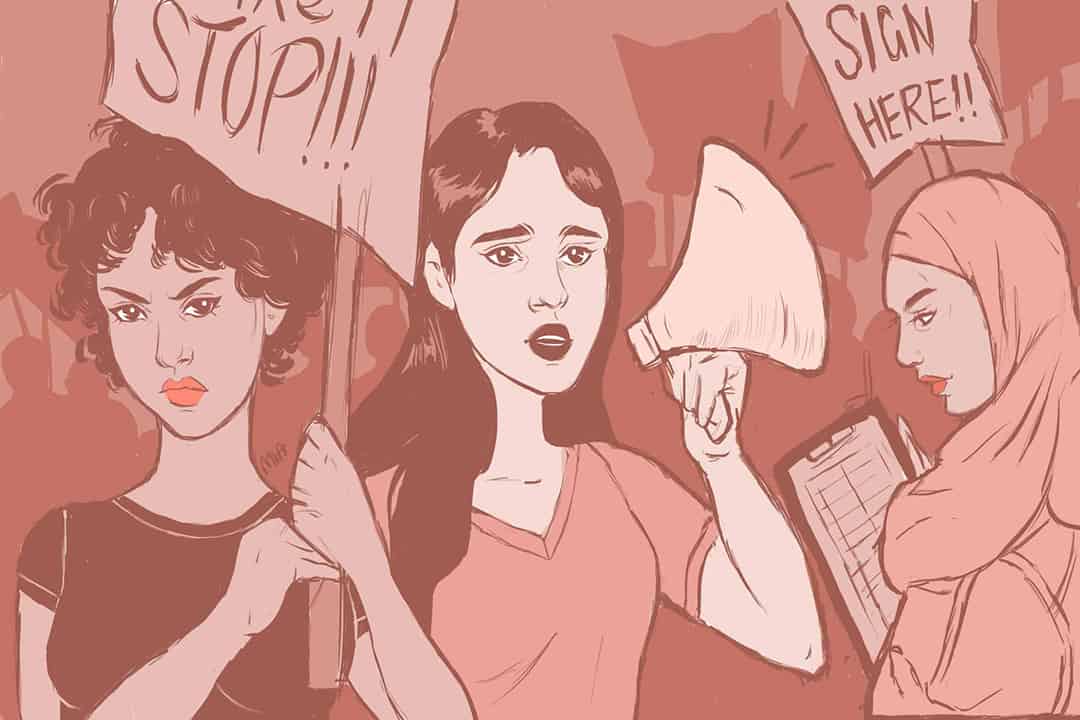On September 28, I had the opportunity to attend the U of T event in which Margaret Atwood, renowned Canadian poet and novelist, discussed the future of democracy alongside other panelists. Atwood’s penning of a number of dystopian novels like The Handmaid’s Tale and Oryx and Crake gives her a certain level of credibility on the subject. Truth be told, I found the conversation to be interesting as it stirred up my own opinion on democracy and how it relates to women’s rights.
Democracy, a political system present in 96 out of the 167 countries with populations of at least 500,000, constitutionally promises the enforcement of legislation that defends the rights and interests of its citizens. Essentially, democracy assures that the people are given power, by proxy of elected officials, to participate in decision-making.
But the reality is that not everyone is represented equally in democratic decision-making processes. What specific demographics are actually being allowed to participate in decision-making?
In most cases, the answer isn’t women. The harsh reality is that women are underrepresented in these so-called equal decision-making processes. Despite constituting half of the world’s population, there continues to be a lack of representation of women as voters, elected officials, party leaders, and government representatives. As a direct result of this, women are being deprived of power, autonomy, and agency.
When the US Supreme Court overturned Roe v Wade over the summer, female bodily autonomy and reproductive rights were cruelly violated. It’s no surprise, then, that just over a quarter of all seats in the current U.S Congress are held by women. If more seats were held by women, then maybe the state of reproductive rights in the US would be different.
So the question is, why are women not being represented? The way I see it is that cisgender men in positions of power ignore the issue of women’s rights and want to continue to perpetuate systemic institutions of patriarchal oppression. Placing women in positions of power threatens these men because it would force them to be held accountable for their ignorance, shortcomings, and inadequacies.
This heavily contributes to why democratic societies are disintegrating worldwide. The equal representation promised by democracy should allow women’s rights to be enforced in political, civil, economic, and social contexts. However, this isn’t the case; women’s voices are not being heard and their rights aren’t being defended. How do we fix this?
Atwood said at the event that “there is no straight line to democracy.” To ensure that democracy does not fall entirely, the slow process of achieving the restoration of democracy and, by extension, the rights of women, is anything but linear. So we get it, democracy is failing and women’s rights are not being represented equally in the decision-making process. But instead of lamenting over the state of democracy, we should turn to what must be done to ensure the women’s voices are heard to the fullest extent.
Democratic countries must reevaluate their political systems and the diversity of elected officials. They must ensure that there is equal representation of men and women in their governing councils, so that legislation protects women’s rights. This would provide women with more opportunities to enter traditionally male-dominated spaces and finally have their voices heard.
In a special opinion piece for the Globe and Mail, Atwood wrote that “a war among women, as opposed to a war on women, is always pleasing to those who do not wish women well.” Atwood couldn’t have stated it better. I believe it is the responsibility of men to dismantle the toxicity with which they conduct themselves, challenge one another to respect women, and to adopt attitudes of respect and dignity toward them. Once women are seen as people under the eyes of the law and the men who implement its legislations, only then can we begin to see democracy’s restoration.
Paden Neundorf is a fourth-year English and equity studies student at Woodsworth College


